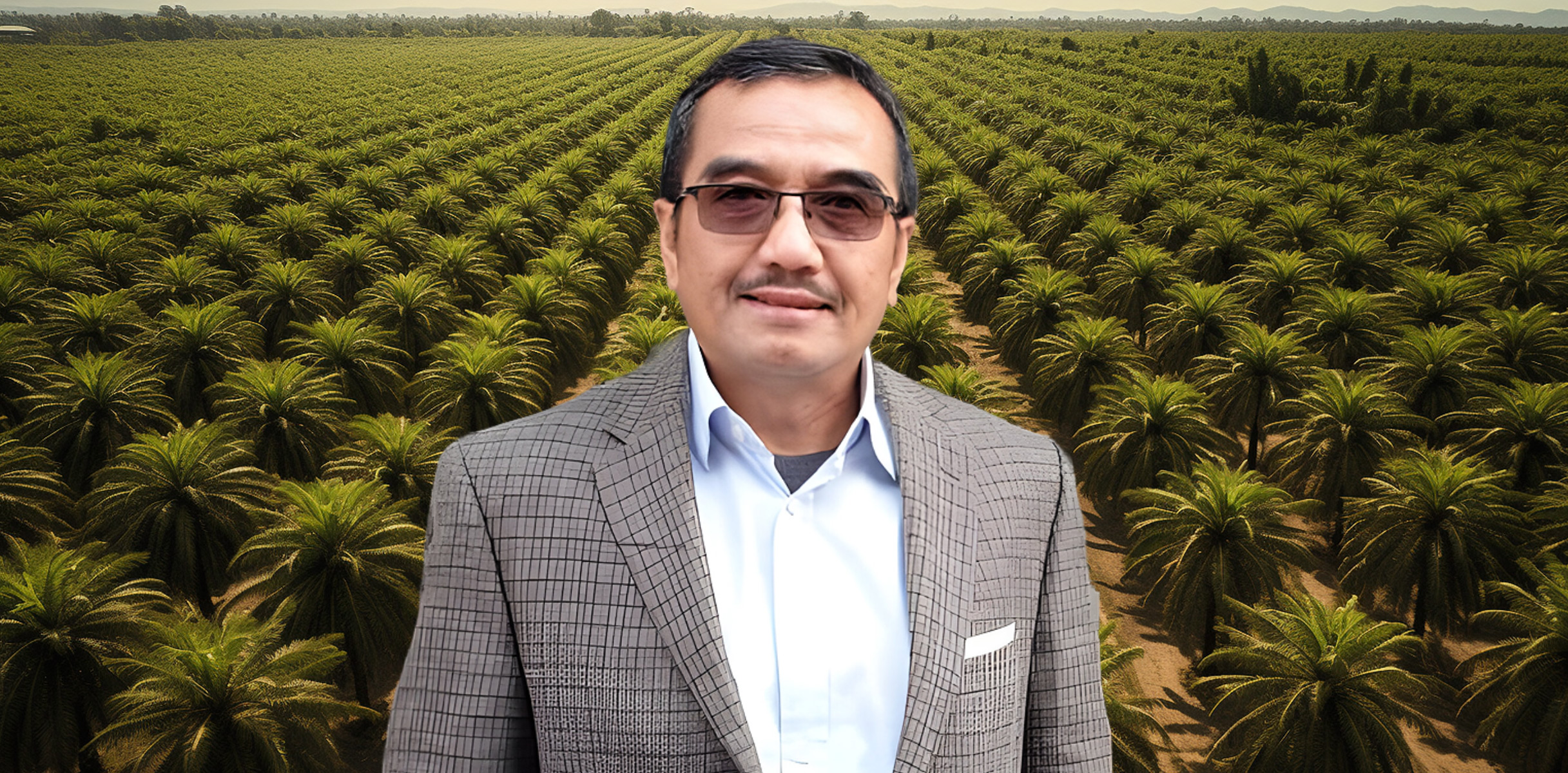India and Indonesia Bet on Smart Oils for a Stronger Future
Eddy Martono of GAPKI on how palm oil anchors India’s edible oil resilience through strategy, sustainability, and Indo-Indonesian cooperation.
In this article, Eddy Martono, Chairman of the Indonesian Palm Oil Association (GAPKI), explores palm oil’s pivotal role in India’s edible oil security. He highlights how strategic cooperation between Indonesia and India is transforming palm oil from a traded commodity into a lever of resilience, sustainability, and shared economic growth.
As global edible oil markets shift under the weight of climate volatility, trade disruptions, and policy resets, palm oil remains a critical lever for India to secure affordability, enable industrial flexibility, and shape a more predictable future.
When edible oil is a $20 billion import bill, can strategy replace dependence?
Volatility has become the rule, not the exception. Weather shocks in Latin America, freight cost spikes from the Red Sea crisis, and policy shifts from exporting nations like Indonesia have redefined what edible oil supply means. For a country like India where more than half of edible oil demand is met through imports, resilience is no longer an ambition. It's an operational necessity.
In this market, palm oil holds a distinct advantage. It is not just a bulk commodity moving across oceans. It is the backbone of edible oil stability, a trade enabler, and a driver of predictability. Its resilience is baked into the numbers, and its strategic value continues to grow.
India’s Edible Oil Balancing Act
India consumes over 25 million tonnes of edible oil each year. Palm oil alone accounts for over 9 million tonnes. With domestic production covering only 40–45 percent of demand, the country imported over 16.5 million tonnes of edible oil in 2023–24, spending upwards of USD 20.5 billion in foreign exchange.
Palm oil makes up the lion’s share of these imports. Its yield profile—up to four tonnes per hectare, compared to under one tonne for other oilseeds—delivers unmatched productivity and cost-efficiency. This advantage begins at the plantation and compounds through the supply chain, offering affordability and scale that no other oil can currently match.
Palm Oil as India’s Price Stabiliser
Palm oil’s pricing advantage is measurable and persistent. According to Solvent Extractors’ Association of India (SEA’s) August 2025 data, crude palm oil (CIF Mumbai) was priced at USD 1,155 per tonne, while soybean oil stood at USD 1,191 and sunflower at USD 1,250. This 3–8 percent edge is not marginal, it is market-moving.
In 2024, the Government of India cut the basic customs duty on crude edible oils from 20 percent to 10 percent. This widened the margin between crude and refined oil imports, creating headroom for domestic refining and offering relief to consumers. Palm oil, with its dependable volumes, was the enabler of that pivot.
In rural India, where palm oil accounts for over 60 percent of total edible oil consumption, this stability directly supports affordability and food security.
India–Indonesia: A Strategic Corridor, Not Just Trade
India imported 4.2 million tonnes of palm oil from Indonesia in FY 2023–24, comprising nearly half of total palm imports. But this corridor is more than volume. It is built on predictable terms, long-standing bilateral frameworks like Comprehensive Economic Cooperation Agreement (CECA), and technical agreements that now include quality assurance, traceability, and sustainable production benchmarks.
Indonesia, which produced 48 million tonnes of crude palm oil in 2023, is simultaneously increasing its domestic biodiesel allocation under the B40 mandate. That makes the India-bound stream even more strategically important, both in terms of continuity and certainty. However, this is not a mere transactional exchange. When Indian buyers signal demand for traceable and ethically sourced palm oil, it creates a price and policy signal that shapes production practices in Indonesia. This corridor is co-authored by both sides. India through procurement, and Indonesia through certification. As a key stakeholder representing producers in Indonesia, the Indonesian Palm Oil Association (IPOA) has played an active role in many of the bilateral engagements that shape this corridor and its sustainability frameworks. At a multilateral level, India is also an active founding member of the Asian Palm Oil Alliance (APOA), which brings together key consumer nations to coordinate strategies on sustainability, trade resilience, and policy harmonization across Asia’s edible oil ecosystem.
Sustainability: From Obligation to Differentiator
Global buyers now expect Environmental, Social, and Governance (ESG) compliance as a default. With over 5.24 million hectares Indonesian Sustainable Palm Oil (ISPO) certified, and growing alignment with frameworks like Roundtable on Sustainable Palm Oil (RSPO) and International Sustainability and Carbon Certification (ISCC), Indonesia is redefining what palm oil sustainability means at scale.
Joint pilot projects, including those supported by the United Nations Development Programme (UNDP) and the Council of Palm Oil Producing Countries (CPOPC), are bringing sustainability down to the smallholder level. No Deforestation, No Peat, No Exploitation (NDPE) commitments, digital traceability systems, and policy-level cooperation between India and Indonesia have elevated the role of compliance from a burden to a brand asset.
India, in parallel, has embedded traceability and quality assurance requirements into its technical palm oil procurement framework signed in 2025. This alignment positions Indian refiners, traders, and retailers ahead of the curve in future-proofing their global sourcing strategies.
Domestic Value Creation and Policy Synergy
India’s National Mission on Edible Oils – Oil Palm (NMEO–OP) targets 1 million hectares of cultivation by 2025–26. While the initiative is crucial, India will continue to depend on imports for the foreseeable future. The real opportunity lies in combining strategic imports with local value addition. Palm oil is uniquely suited for this. From refining to packaging, from oleochemicals to food processing, each tonne imported supports thousands of jobs across the SME sector. Industry estimates suggest that every 1 million tonnes of palm oil processed domestically supports around 25,000 direct jobs and up to 100,000 indirect jobs.
Trade policy has already created groundwork. Duty differentials favoring crude imports stimulate domestic refining, while mandated Maximum Retail Price (MRP) transparency keeps the benefits consumer-facing. This model anchored in strategic imports and strengthened by domestic processing, has become a proven pathway to building long-term resilience.
From Volume to Strategic Value
In a fractured global edible oil market, palm oil is India’s best shot at anchoring predictability. Its yield advantage, pricing power, and long-term trade architecture with Indonesia create a platform that few other oils can replicate.
More importantly, its potential goes beyond cost. With sustainability frameworks in place, supportive policy in motion, and private sector engagement scaling, palm oil becomes a channel for economic resilience, employment, and regional alignment.
To future-proof edible oil supply, India doesn’t just need more oil. It needs smarter oil. Palm oil, when sourced responsibly, processed domestically, and traded strategically, fits that brief. It is not merely a fallback. It is a forward strategy.





.jpg)
